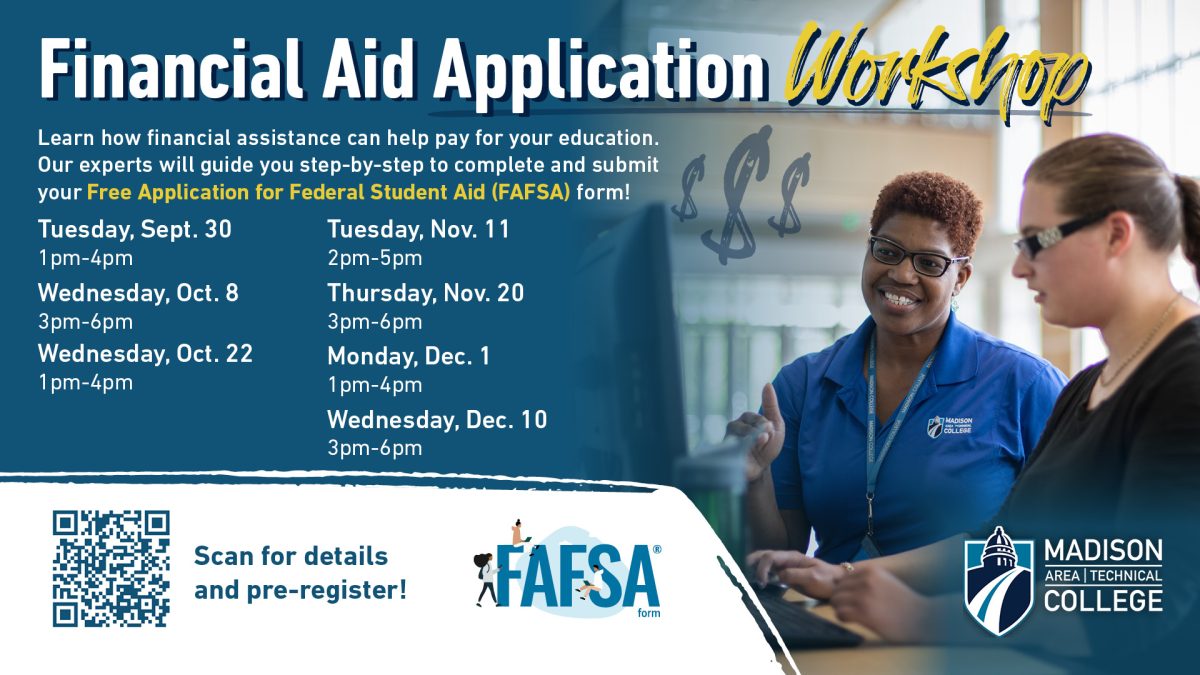Sarah “Bird” Cupps just returned from a unique experience on a fall sabbatical. She spent time at Kakuma, a refugee camp in Kenya.
Cupps, a Madison Area Technical College instructor since 2002, spent two weeks working with journalists at “Kanere: The Kakuma Refugee News Reflector.”
The newspaper is produced in Kakuma, located in the Turkana District in the northwestern region of Kenya. There are roughly 50,000 refugees in the camp, according to the United Nations High Commissioner for Refugees (UNHCR).
Kanere strives to promote respect for human rights.They also strive to create a more open society in refugee camps and to develop a platform for fair public debate on refugee affairs.
“The Kanere journalists are the bravest people I have ever met,” Cupps said. “It has been a long process of them trying to establish their legal right to do so and set themselves up to publish a newspaper.”
In 2008, Cupps met Kakuma refugees at a writer’s conference in Nairobi. She then met individuals who wrote in the camp and heard them speak about western journalists going to Kakuma. Their motivation was to write their stories, but also to try to make money at the same time.
“When I heard them say that, I thought to myself ‘well, I’m a person who teaches people how to write,’” Cupps said. “I thought to myself, ‘that’s something I could do.’”
While in on her trip 2008, Cupps strived to help the writers tell their own stories. However, it wasn’t meant to be. Time constraints and difficult travel affected the timeliness of the working relationship.
“Kakuma is in a very remote part of Kenya. It is very difficult to get there,” Cupps said. “If you have plenty of money, you can fly in there, but I didn’t have enough money.”
Cupps has been trying to make her way to Kakuma ever since then. However, making it there to help out the newspaper didn’t work out until last year. She continued to read the newspaper until she had the chance to go.
Cupps finally made it to Kanere in December after being in contact with the writers at Kanere for over a year. Working with the journalists there suited Cupps’ background. Prior to working at Madison College, she developed a background in narrative journalism.
“I was a freelance writer and editor for many years,” Cupps said. “I wrote for magazines. When I was very young, I wrote for a newspaper.”
Kanere is similar to a newspaper in the U.S. in the sense that it has a business section, community section, opinion section and letters to the editor. However, it runs an arts section that features activism poetry.
Kanere has restraints on its capabilities. Kanere has a goal of having a full-blown print version of the newspaper, but only a limited number of print versions are available around the camp, according to the newspaper’s website. Kanere primarily runs in an online format. When they initially started the newspaper, the people at Kanere felt their work would be supported by the UNHCR.
“The journalists would like to publish a print version, but they are limited because they don’t have any funding,” Cupps said. “They sought funding from UNHCR and were unsuccessful in those attempts.”
Cupps is looking to continue contributions to the Kanere. She continues to work on writing an essay for the publication that will appear in the paper in the future.



























